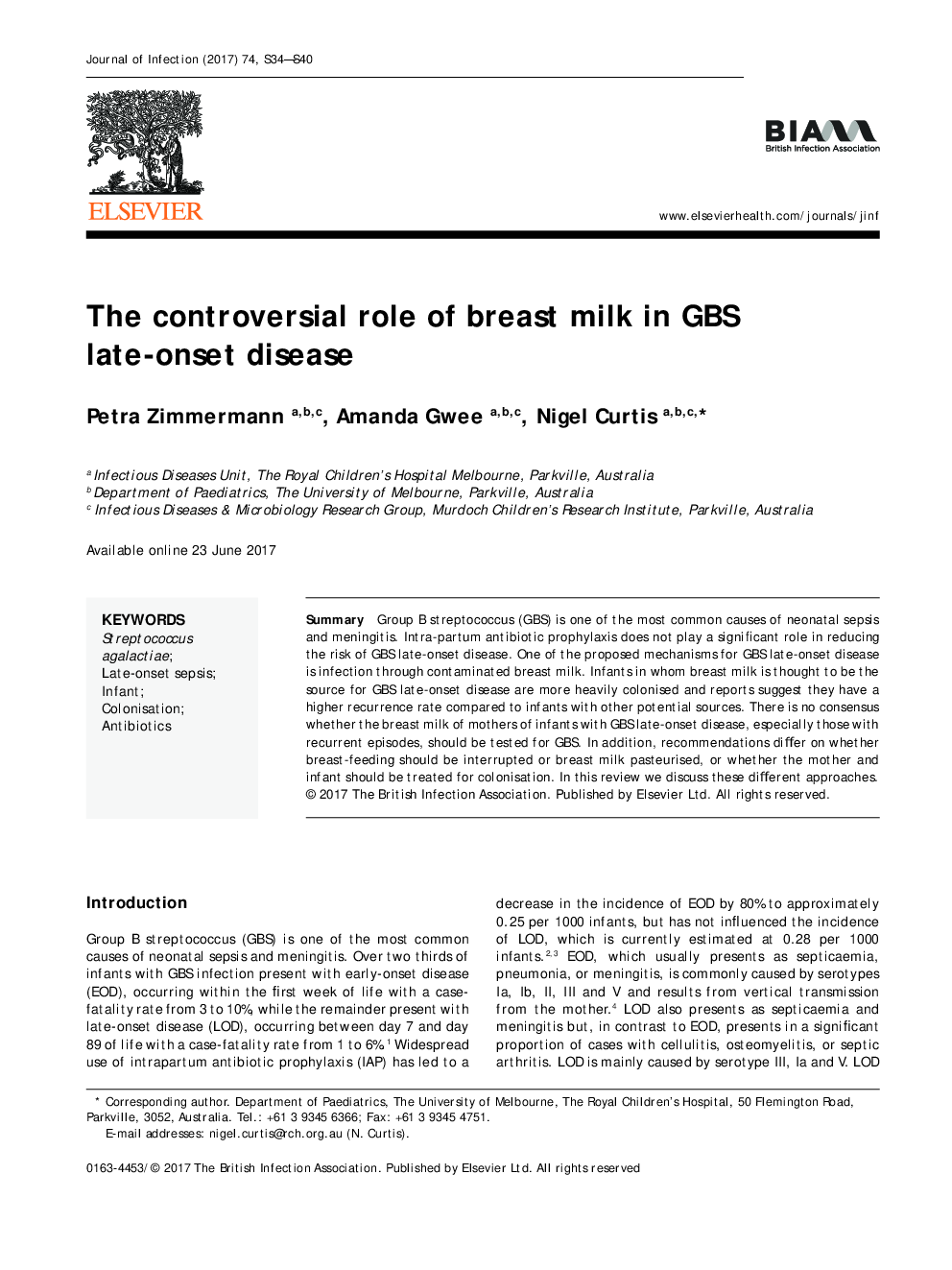| Article ID | Journal | Published Year | Pages | File Type |
|---|---|---|---|---|
| 5668781 | Journal of Infection | 2017 | 7 Pages |
SummaryGroup B streptococcus (GBS) is one of the most common causes of neonatal sepsis and meningitis. Intra-partum antibiotic prophylaxis does not play a significant role in reducing the risk of GBS late-onset disease. One of the proposed mechanisms for GBS late-onset disease is infection through contaminated breast milk. Infants in whom breast milk is thought to be the source for GBS late-onset disease are more heavily colonised and reports suggest they have a higher recurrence rate compared to infants with other potential sources. There is no consensus whether the breast milk of mothers of infants with GBS late-onset disease, especially those with recurrent episodes, should be tested for GBS. In addition, recommendations differ on whether breast-feeding should be interrupted or breast milk pasteurised, or whether the mother and infant should be treated for colonisation. In this review we discuss these different approaches.
